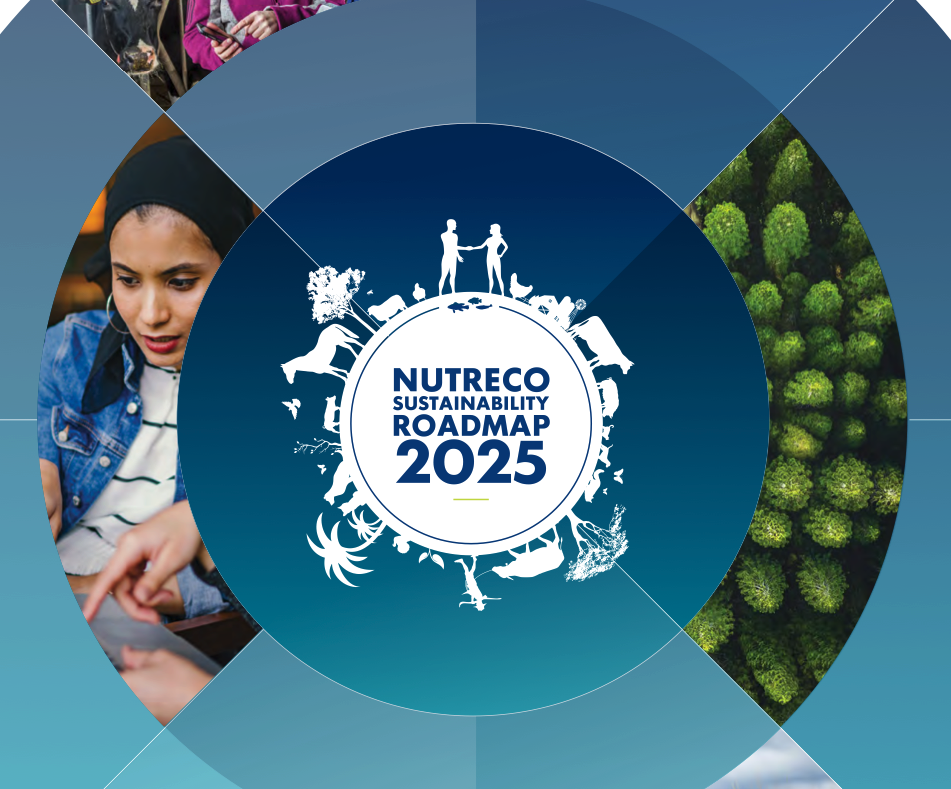Nutreco today announces the rollout of its sustainability strategy through to the end of 2025. This five-year strategy, called RoadMap 2025, includes Nutreco's commitment to the Science Based Target initiative, which commits to review, accept and publish Nutreco’s reduction targets in the first quarter of 2021. Nutreco embraces the objective of the Paris Agreement, to limit global temperature rises to well below 2°C and aims to contribute to the United Nations Sustainable Development Goals (SDGs).
Nutreco sets out bold new strategy to cut greenhouse gas emissions by 2030

“Nutreco has a strong track record in leading the way with sustainability challenges. RoadMap 2025 is an ambitious strategy that further strengthens and progresses the sustainability work our employees do every day. Sustainability is critical in helping us achieve our mission of Feeding the Future and we believe RoadMap 2025 reflects this.”
The new RoadMap 2025 strategy sets out renewed and measurable targets, including efforts to reduce antimicrobial resistance (AMR) and an overall reduction of the company’s carbon footprint. The RoadMap also sets out broader corporate citizenship goals, including moving the dial on diversity by ensuring a quarter of its leadership positions are held by women.
The Roadmap 2025 strategy is underpinned by three key pillars and will be executed through its animal nutrition division Trouw Nutrition and its aquaculture division Skretting.
1. Health and welfare
Alongside Nutreco’s ongoing commitment to ensuring animals are raised with optimal nutrition and good welfare, the company has strengthened its commitment to tackling antimicrobial resistance with a new set of metrics. This includes lowering overall antibiotic use, ensuring that medications are applied under direct and approved supervision by qualified veterinarians when needed, and the total elimination of the use of any antibiotic or related medications that are listed on the World Health Organization’s list of “Critically Important for Human Health.”
2. Climate and circularity
In addition to the ambitious Science-Based Targets (SBT) for GHG emission reductions, matched by a set of carbon footprinting tools, Nutreco has set out ambitions to significantly reduce energy usage. By 2025, it aims to consume less than 2% of its energy from coal and less than 5% of its energy from fuel oil. By 2030, Nutreco has the ambition to be completely coal-free and fuel oil-free. Having just released a Sustainability Soy and Oil Palm Sourcing Policy in December 2020, Nutreco is committing to a deforestation-free supply chain by 2025. Nutreco also aims to move the dial on sustainability with the ambition to include 5% to 10% of ingredients from novel sources in its feeds, and has pledged to invest a minimum of €30 million to support its total R&D efforts, while making progress on sustainable packaging.
Nutreco Sustainability Director José Villalon says, "Climate change is one of the most significant threats we face today as a society and to the future of our business. We are running out of time to avoid the tipping point of global warming, which is why we are setting bolder and measurable ambitions. Using Nutreco’s industry expertise and working closely with our partners, we know we can make a difference at significant scale while we work towards our mission of Feeding the Future.”
3. Good citizenship
Contributing to zero hunger and promoting diversity and inclusion are at the heart of Nutreco’s final pillar. Nutreco aims to significantly expand its community development initiatives to help poverty reduction by raising the income of small farmers on extreme poverty income levels. In addition, it has committed to ensuring at least one out of three new hires is female with the longer-term ambition of having 25% women in senior leadership by 2025; it will also offer a leadership training programme to help realise this aim.
The ambitious new strategy builds on Nutreco’s recent commitment to setting science-based targets in scope one, two and three, and thus to reduce its overall company’s carbon footprint.